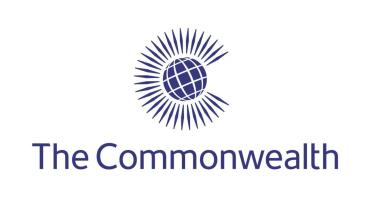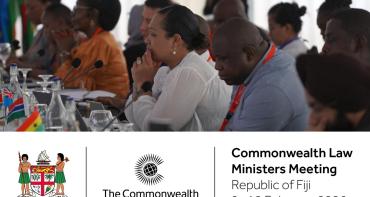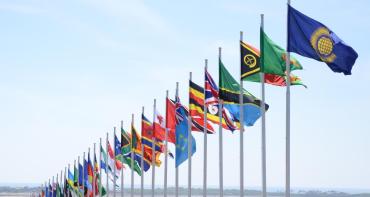The Commonwealth in Crisis – Is Reform Possible? Conference organised by the Commonwealth Advisory Bureau and The Round Table: the Commonwealth Journal of International Affairs
At the outset, let me thank Stuart Mole and Daisy Cooper for inviting me to participate in this conference and to be a panellist at this session. It is great not only to be among so many friends, but also to have here two distinguished members of the Commonwealth Eminent Persons Group, Senator Hugh Segal and Sir Ronald Sanders, also in our midst.
I suspect I have the role of picking up the gauntlet lying on the floor, especially as this conference now coincides with the release of the report by the Foreign Affairs Committee of the House of Commons. Others might call it drinking from a poisoned chalice! However, I do value the opportunity to give you a perspective from the Commonwealth Secretariat on the themes being covered by this session.
It would not surprise you if I were to begin by challenging the title of this conference: ‘The Commonwealth in Crisis – Is Reform Possible?’ It is certainly a catchy one, but it is, in my view, an overly dramatic and inherently pessimistic one. I do not deny that the Commonwealth has many challenges to face. But when was that not the case? I would submit that not only is the Commonwealth not in crisis, but it is constantly evolving, reforming and finding new ways of upholding its values.
I say so from my vantage point as someone who has had a ringside seat in the Commonwealth for quite a long time – and I can assure that it is not a subjective view, but one that is well considered and objective. When I see the graph of the Commonwealth over this period, I do wonder why terms like ‘crisis’ are employed.
To me the word ‘crisis’ is reminiscent of two occasions when the Commonwealth was truly at the crossroads – one in the 1960s when the Universal Declaration of Independence by Ian Smith in what was then Rhodesia threatened to rip the association apart; and the other in the 1980s, when Britain was ranged against the rest of the Commonwealth over apartheid in South Africa. Those were truly difficult days, when the integrity and cohesiveness of the Commonwealth were indeed in peril.
The talk of crisis in the Commonwealth in 2012 is rather bewildering to me.
Let us consider the facts. Since 1991, when the Harare Declaration was adopted, twelve Commonwealth countries have moved from being military-ruled or one-party states to multi-party democracy. Some have moved back and forth, but the graph has had an inexorably upwards trajectory. Eight of the top ten countries in Africa, ranked according to the Mo Ibrahim Index of Good Governance, are from the Commonwealth. Today, Commonwealth Africa is arguably doing much better generally than the rest of the continent in terms of governance and indeed in terms of the inward investment attracted by these countries. Transparency International’s Corruption Perceptions Index for 2011, records 9 Commonwealth member states in the top 30, out of a total of 183 countries.
The Commonwealth was the first organisation in the world to create a Commonwealth Ministerial Action Group (CMAG). Despite the desire to emulate this – as well as efforts to do so – no other organisation has really managed to replicate CMAG. Long before others followed suit, it became impossible for a member country to carry out an unconstitutional overthrow of an elected government and not be suspended from the councils of the Commonwealth. CMAG is still the envy of other organisations; I know, because when I visit my counterparts in those organisations, they still marvel with disbelief at how we could ever have secured agreement on having such a mechanism!
It is true that CMAG has worked very well when coups have taken place – and that it has been less effective in situations that fall short of that but are nonetheless serious. That is why the Perth Commonwealth Heads of Government Meeting last year gave CMAG an enhanced role, seeking to make it more proactive and pre-emptive. Commonwealth leaders also sought to de-stigmatise CMAG by giving it a more constructive and engaging look, though it is debatable how far that has succeeded.
For the first time benchmarks were set out, which would be used to assess whether a country is moving in the direction of seriously flouting the Commonwealth’s political values and principles. They included the degree to which constitutions are respected; the extent to which fair and credible elections are held in a timely manner and on a level playing field; and the level to which the rule of law and independence of the judiciary are respected. The yardsticks also include whether human rights are adequately protected; political space is guaranteed for the opposition; and the freedom of the media and civil society are respected.
The agreement on CMAG’s enhanced mandate was a major step forward, especially as similar attempts under the two previous Secretaries-General had floundered.
The new dispensation has been tested in the case of Maldives and CMAG has responded in innovative ways, including sending a ministerial mission and consulting several times by teleconference. The Commonwealth Secretary-General has also introduced the practice of briefing CMAG at each meeting on his various Good Offices engagements, even in countries that are not on CMAG’s agenda. But it would probably be fair to say that the full test of pro-activeness and pre-emption is yet to come, and to note also that the stigma that goes with being on CMAG’s agenda has not been banished – I suspect that will be hard to achieve; and some would even argue that CMAG will never serve its original purpose without the ‘fear factor’.
On the human rights front, the Commonwealth has always functioned on the basis that its role is to promote awareness of and adherence to international human rights treaties and frameworks, as well as to build capacities to strengthen national rights protection and promotion. The Commonwealth has never had an investigative or monitoring role as such, especially given the substantive mechanisms of the United Nations. However, whenever CMAG has been seized of particular country situations, assessments of the human rights situation in those countries have always been an essential part of CMAG’s scrutiny. Similarly, the SG’s Good Offices role has also focused on egregious human rights violations.
Overall, in the area of human rights, the Commonwealth has made steady progress, including on issues where the membership is seriously divided, such as issues of sexual orientation (LGBTI) and the death penalty.
On issues of sexual orientation, those who have grown up in what might be called western liberal democracies tend to often gloss over the fact that there is no agreed Commonwealth position on LGBTI as such, though the association believes firmly in non-discrimination on any grounds. A large majority of Commonwealth member states have national laws that are not in compliance with international human rights frameworks, almost invariably inherited from colonial times. The Secretary-General spoke for the Commonwealth as a whole when he told the Human Rights Council in Geneva last February: “our position continues to be that we oppose discrimination and stigmatisation on any grounds, including those of sexual orientation.” He also said “It is for member states to address incompatibilities between Commonwealth values and mostly inherited national laws in these areas.” The High Commissioner for Human Rights, in her recent address to the UN General Assembly, underscored the fact that the UN house is also divided on this issue and that more dialogue is necessary.
We have a similar situation in respect of the death penalty, which remains on the statute books of a number of member countries. Many of them have not carried out any executions for many years, in effect constituting a de facto moratorium. Recently, The Gambia executed a number of prisoners on death row. We responded with a statement, in which we expressed serious concern at the executions and called on the Gambian Government to renounce plans for any further executions. Despite there being a divided house on the death penalty, the Secretary-General has not hesitated to speak out.
In both of these areas – sexual orientation and capital punishment – progress can only be incremental and made through quiet persuasion and continued dialogue. There is no scope for censure and there should be no expectation of overnight miracles. The recent development in one of our member countries, calling upon Parliament to debate the issue of the constitutionality of retaining anti-gay legislation is a commendable one.
Our record in the field of human rights generally is an active and creditable one. Whether it is the areas I have already cited, or in those of early and forced marriage, or disability rights, or the accountability and oversight of law enforcement agencies, or support to countries with the Universal Periodic Review process of the UN Human Rights Council, we have a good story to tell.
You may also be aware that the Commonwealth Secretary-General and the President of the International Criminal Court signed a Memorandum of Understanding and Co-operation between their respective institutions in July 2011, signalling the former’s commitment to end impunity for perpetrators of genocide, crimes against humanity and war crimes.
I would be remiss if I did not mention the proposal of the Eminent Persons Group to establish a ‘Commissioner for Democracy, Rule of Law and Human Rights’. The very experienced and wise personalities that comprised the EPG made this proposal – in good faith -- in an attempt to address what they felt was a lacuna in the current Commonwealth architecture. The Group believed that the Commonwealth’s role in promoting its fundamental political values would be better served if CMAG and the Secretary-General had recourse to a dedicated source of intelligence and advice, delivered candidly and dispassionately, without being inhibited by the pulls and pressures exerted by member governments.
It is well known that the proposal did not achieve consensus at the Perth CHOGM. A large majority of member countries opposed the creation of a new institution, which they saw as parallel to the Secretary-General. Frankly, in my view it did not help for the EPG to call the proposed institution a ‘Commissioner’, which was seen immediately as a replication – and indeed a duplication – of the UN High Commissioner for Human Rights. The naysayers saw this as an unacceptable ratcheting up of proposed intrusiveness by the Commonwealth just when they had already agreed to enhance CMAG’s role by allowing that mechanism an unprecedented level of intrusion.
The intensity of opposition to the idea in the summer and autumn of 2011, first at a High Commissioners’ meeting in London, then at the Foreign Ministers Meeting in New York and finally at the CHOGM in Perth, led to the inescapable conclusion that any proposal that smacks of the ‘Commissioner’ will fail to achieve consensus.
Proponents and supporters of the idea have persisted in the view that some new way must be found to supplement the role of the Secretary-General and the staff of the Secretariat in scrutinising the performance of member states when it comes to upholding the Commonwealth’s political values. The House of Commons Foreign Affairs Committee has echoed that view. But the examination of possible options by CMAG and the Secretary-General, mandated by Heads of Government at Perth, had not produced consensus on any such mechanism and, to be honest, such consensus is not in sight.
The Commonwealth will therefore have to raise its game on its fundamental political values in other ways – raise it, it must. The Secretary-General’s Good offices must, as always, remain the first port of call and the Secretariat needs to further strengthen its early warning systems and look for holistic strategies to prevent derogations. CMAG must implement its new role seriously. The Commonwealth Electoral Network, now well and truly launched, must make it very difficult, if not impossible, for national elections to become train-wrecks. The Commonwealth Parliamentary Association must genuinely enable parliaments to play their appointed role in democratic societies. The Commonwealth Local Government Forum must give new meaning to grass-roots democracy. And even torchbearer civil society organisations, like the Commonwealth Human Rights Initiative, the Commonwealth Journalists Association and the Commonwealth Magistrates and Judges Association must play their due role. It is possible to do all this, building on the strong foundations that already exist.
As Senator Segal noted, there has been progress and the direction of travel is the right one. The Secretary-General fully intends to upgrade the human rights promotion capacity of the Secretariat. There is greater connectivity between the Secretary-General’s Good Offices and the work of CMAG, including between the SG’s Special Envoys and CMAG. And there will be greater consultation with relevant Commonwealth civil society organisations.
At the outset, I did acknowledge that the Commonwealth still has many challenges to face, even if it has come a long way. The pursuit of core Commonwealth political values requires constant alertness, commitment and perseverance. It would not be right for me to convey the impression that all is hunky-dory and that we can afford to rest on our laurels.
Nurturing values is a constant and unrelenting task and there are still countries in our midst that give us cause for concern for one reason or another. One country is still suspended from Commonwealth membership, having been under military rule now for nearly six years. Another has seen a contentious transfer of power earlier this year that has deeply polarised its society. In some instances we have worrisome issues of perceived human rights violations, transgressions against the rule of law and the independence of the judiciary, and of post-conflict justice and reconciliation, to name a few of the challenges that confront us. Our member states know that they must live by the rules to which they have themselves agreed. CMAG knows that it must live up to its redesigned role. And we in the Secretariat know that we must constantly hold our member states’ feet to the fire when necessary to stand up in defence of the association’s core values.
The Commonwealth approach generally is not to publicly name and shame, not to use megaphones to chide or rebuke, but to engage quietly, to agree on shared goals and then provide support in achieving these in partnership. That is the Commonwealth way. It has made a difference over the years and if remains the best way forward.
Thank you.



